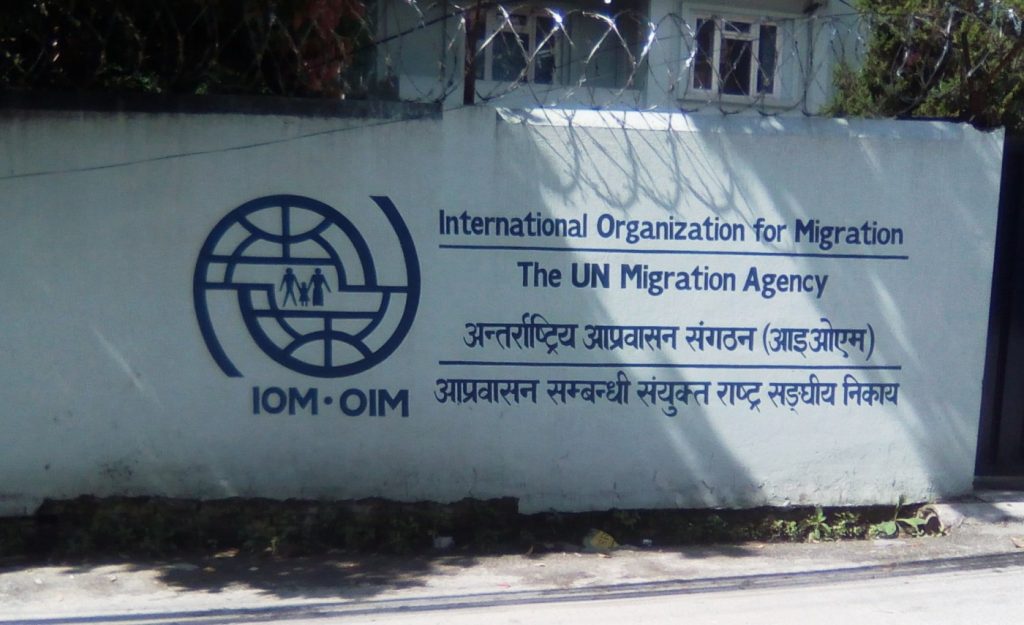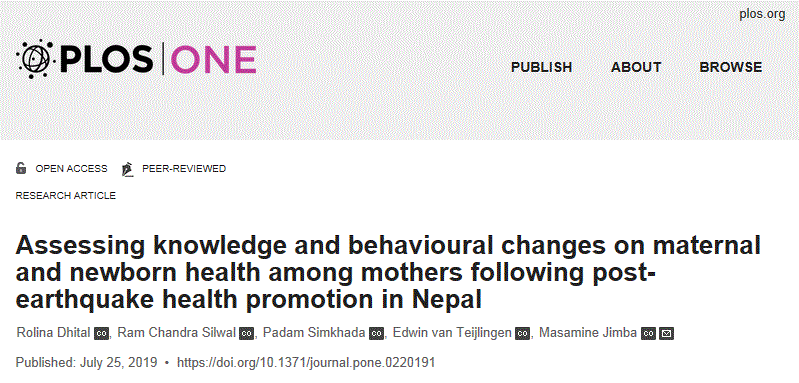The Policy Update will take a break for a few weeks followed by a bumper edition catching you up with the summer news. We realise that this is poor timing given everything that is happening but we offer you some great links to use instead:
New PM and administration
The PM gave his first statement to the House of Commons. Interestingly he did chunks of it facing his own side. And very fast.
- The deal is dead
- The backstop is dead – a time limit is not enough
- Ready to negotiate an alternative in good faith
- Does not accept that any of the UK needs to stay in the single market or customs union
- Steadfastly committed to the Good Friday Agreement
- Preparing for no deal is a top priority in case it is necessary
- Absolute commitment to 31st October
- And repeated a lot of yesterday’s spending pledges on education, health, social care, police etc
- He has asked the Migration Advisory Committee to come up with a new plan on immigration – referring again to the Australian points based system
You can catch up on the appointments to cabinet via the BBC here, who will presumably also list the more junior roles as they come out over the next few days.
This from Conservative Home: “Remainers and Leavers alike can converge on a shared point. Vote Leave helped to create Brexit. Let their leaders now own it. If one asks for decisiveness – for an end to drift – one can scarcely complain when it’s delivered.”
One of the most interesting from a Brexit point of view is the appointment of Jacob Rees-Mogg and leader of the House of Commons, which puts him in pole position to go up against Speaker Bercow over Parliamentary efforts to block a no-deal Brexit. Rees-Mogg made his first appearance on Thursday. Lots of laughing as he said pretty much nothing at all. He said prorogation was an archaic mechanism and the PM has said that he does not want to see archaic mechanisms used. He was vague on recesses. He also said that Parliamentary motions cannot overrule legislation – motions of course being the tool that rebels and opposition of all sides have used a lot this last year. And Theresa May used to take notice of the will of the house as indicated by motion. I wrote a while ago that those wishing for a change might regret it because the new government are very unlikely to take as much notice.
The press is full of profiles of new PMs and his cabinet, many of them character assassinations, some massively supportive.
And everyone is lobbying – from the EU saying “we already have a deal but we can look at the political declaration” to UUK saying that he needs to look at post-study visas and participation in EU research programmes, and everything in between. Like he’ll be listening to any of that for the next three days – he has plenty of other things to do. Let’s get going, dude.
And views of the outcome of all this – either we have an election in short order with a landslide for the Conservatives, or we have an election with a desperately hung Parliament, or we have no election at all. Either way I still think we are likely to leave the EU without a deal in October. because even if we have one/call one before October an election is unlikely to change anything as far as the EU are concerned. And I still don’t see that many Tories voting down the government. Yet. Matt Hancock ruled out an election deal with the Brexit Party – of course it isn’t up to him (although he did keep his job).
But the PM also seemed to (more or less sort of) rule it out earlier this week. And Jo Swinson has ruled out a Lib Dem deal with Labour. So unless we have a smooth exit (with a deal, or less bad than expected without one), followed by a Tory landslide (still possible), we may be headed for Italian style politics based on minority governments and frequent changes of leader for some time yet.
The new leader of the Lib Dems has asked Jeremy Corbyn to call for a vote of no confidence on Thursday. This is very unlikely to happen.
Will there be a spending review? Interesting blog from the Institute for Government:
- If the spending review had run on Philip Hammond’s time-table then it would already be underway, but it now looks like a very tall order to complete a three-year spending review before an autumn Budget.
- This is partly because of uncertainty about Brexit. Without knowing when and how it will happen, it is difficult to predict the economic and fiscal consequences – this makes decisions about spending across government departments ever harder to make.
- It is also about political head space. Can a new Chancellor, a new Chief Secretary and new Ministers in charge of most spending departments really sort out a spending review in only a few months? Do they even have the time to attempt it while Brexit still dominates their attention morning, noon and night?
- There has been speculation that the Budget may be brought forward to September. This would make it impossible to undertake a spending review. So an early decision for Sajid Javid will be whether to defer the spending review to 2020 and instead attempt a much more limited exercise this year to patch up public service budgets for 2020/21
It may all change by September but remember that MPs have gone back to their constituencies on Thursday. No more late night make or break votes. They are not due back until 3rd September and then they are expected to break again for conferences for three weeks in mid September into October. The PM doesn’t need to prorogue Parliament – they are hardly meeting. So all the politics will happen behind closed doors or through the press between now and early September, at least.
The government, of course, will not go on holiday – the PM has said he in a hurry and it will be a busy summer.
Meanwhile with a focus on the sector, Nick Hillman has written for Research Professional a characteristically positive blog about the prospects for HE under a Johnson government, not least a positive attitude to HE and research, a relaxed attitude to immigration and (as a classics graduate) perhaps a less reductionist view of value for money in education.
- In fact, the traits that have damaged recent prime ministers have all been known before they took office.
- We knew Blair was too eager to please long before he sought to please George Bush without proper scrutiny. We knew that Gordon Brown lacked the social skills that make for happy teams and electoral victories. We knew Cameron liked to take risks and enjoyed winging it a bit too much. And we knew that Theresa May was inflexible long before she became prime minister.
- Now we know that Johnson is entering Number 10 famed for his stunts, sunny optimism and constructive ambiguity. Whether these are the characteristics we need to see us through the next few years, only time will tell.
And in terms of the sector appointments?
Jo Johnson is back in what looks like his old job at BEIS and DfE, as Minister for Business, Energy, Industrial Strategy….and Education. That looks like universities. Is it called education to reflect a view that the post-18 review and Augar had a point and that the integration of post 18 education will be a real thing (and that at least some of Augar, in that sense, will be implemented?). Or is it something more broad?
He will report to Andrea Leadsom (grammar school; University of Warwick, Political Science), as business secretary and Gavin Williamson (comprehensive school; BSc in Social Sciences from the University of Bradford) as Education secretary. And Jo Johnson (Eton; Balliol College, Oxford, Modern History) will sit in cabinet – which this post has not done for some time. We don’t know what Gavin Williamson’s and Andrea Leadsom’s views are on Augar (or anything else related to education). Of course one priority is clear, the promise made outside No 10 yesterday about “levelling up funding for primary and secondary schools”.
Not all the details of junior ministers have been released, the focus has been on the cabinet. So maybe Chris Skidmore will stay as universities minister under Jo Johnson? As at the time of writing is still unclear.
Nick Hillman also recommended in a HEPI blog leaving Chris Skidmore in place as Minister. He has been MUCH less negative than Jo Johnson or Sam Gyimah. Interestingly different takes on this one on Thursday morning. The sector generally liked Chris Skidmore. He was positive and supportive. He didn’t like talking about “bums on seats” or 3Ds. He talked a lot about research and research funding. He seemed to get it. Some people have welcomed the return of Jo Johnson, who is opposed to Augar and is pro-immigration (Boris is also pro-immigration).
But we seem to have short memories. Jo Johnson started the bums on seats line of thinking. He created the interventionist system we have now with its focus on encouraging alternative providers (which many worry about) and in which the OfS will not prop up failing universities. At the end of this term in office he was very critical and negative of the sector. Many were pleased to see him go. He may well support 3D floors on entry – as an alternative way of limiting supply instead of cutting fees (which he has said he opposes). He invented the TEF and the KEF. He also invented subject level TEF, which the sector was hoping would be abandoned after Dame Shirley Pearce reports on the TEF (soon?). He got all tangled up the (largely spurious, made-up stories) freedom of speech battle towards the end of his tenure.
Wonkhe have an article by Jim Dickinson, who also reminds us that Jo Johnson also stirred up the snowflake student stuff and grade inflation.
It’s going to be interesting. But of course it may be that this is a short-lived government and they never get to do anything about the detail. We’ll see.
Contextual admissions
HEPI have published an opinion poll of students in What do students think of contextual admissions? (HEPI Policy Note 14).
The survey of over 1,000 students shows:
- three-quarters of full-time undergraduates (73%) think it is harder to achieve good exam results if you grow up in a disadvantaged area – and support is highest at Russell Group, where 81% believe this;
- most students (72%) also think higher education admissions should take account of applicants’ backgrounds;
- around half of students (47%) back lower grade offers to those from disadvantaged areas, while nearly as many (45%) oppose the idea – at the most selective universities, a majority (57%) support lower grade offers while 36% oppose them;
- a minority of students (28%) think contextual admissions would make it ‘harder for students like me’ to get into university, while a majority (53%) disagree;
- two-thirds (65%) of students do not know if their own university makes contextual grade offers and just 16% are certain that it does; and
- most students (54%) think those admitted with lower grades would be able to keep up with the course requirements, but four-in-ten students (38%) do not.
Nick Hillman, HEPI’s Director who wrote the Foreword to the report, said:
- Giving disadvantaged applicants lower entry offers is one of the most controversial things that universities do. But there is a secure evidence base for it, as many people underperform at school and college because of their personal circumstances.
- Amazingly, despite the controversy about and evidence for, contextualised offers, we haven’t known what students think of them. This, rightly, concerns the Office for Students.
- Our poll shows the principles behind contextual offers are widely accepted by students, who believe disadvantage applicants need a boost. Yet most students don’t know if their own university awards contextual offers and only half of students think lower entry offers are right.
- So there is still considerable work to be done on winning over hearts and minds.
Fake news, tribalism and the state of public debate
We thought this period – quieter on specific HE policy although not quiet on national politics, would be a good opportunity to reflect on some bigger issues. This reflection is a sad one; it took us to fake news, tribalism and the state of public debate.
Starting with public debate – perhaps the state we are in was epitomised by the recent Tory leadership debates. Shouty people, mostly men, talking over each other, not listening to either questions or responses, trying to make the three points they had on their “must say” list rather than respond to the question. Despite this, trying to show empathy with the questioner (lots of use of their first names when they could remember them). Ignoring and speaking over the person trying to run the debate. Desperately repeating a small number of phrases over and over again (did anyone know Jeremy Hunt was once an entrepreneur?). Essentially they looked either like a poorly run Oxford Union debate or a dysfunctional family Christmas lunch. (Maybe that is really what Christmas lunch was like for the Johnson family last year.)
But of course those were staged events, in an unreal situation. The general public wasn’t really the audience, the electors were. So perhaps we shouldn’t worry too much about them.
So what about the state of public debate more widely? To say it is polarised would be understating it.
There’s a Conversation article you might find interesting.
I found this US article about fake news in Psychology Today. And it is terrifying to hear that there are people who don’t believe that the moon landings were real. But the problem I wanted to think about was the impact of people in the public eye telling lies. Or at least being economical with the truth. Or at least making promises they break, and perhaps never intended to keep. These all suggest that that the person doesn’t care. It is all about the impact of the statement in the moment. It assumes that the listener doesn’t care either. So Trump can say things that are clearly not true, and his supporters don’t care. He doesn’t care, because it won’t make any difference to the people who don’t support him. So he can land a message about democratic congresswomen and move on. It may not gain him any supporters, but it may deepen support amongst his existing base, because one of the things they admire him for, is saying the unsayable.
And he doesn’t really expect people to take it seriously. All that stuff about the ambassador, and taking him off the invitation list – I don’t know, but it looked to me as if he didn’t really expect him to resign. It could have blown over. Are we doing the wrong thing in taking it all too seriously?
But of course we need to take it seriously, because if we don’t this sort of thing will become even more normal. We will all adopt a cynical approach to everything. And in fact, we probably already have. Which brings us back to fake news – because we are more likely to go back over and over again to the same sources who present a view we agree with – where we can stop being uncomfortably cynical and not question the stories we find in our safe spaces.
Do I have a conclusion? Not really. It’s just worrying. It’s good to know that this is something that BU staff are engaged with. And I went back to the conclusion of that Psychology Today article:
- “Strive to make critical thinking your automatic reaction to online encounters with news and other information. This won’t make you invulnerable and incapable of making missteps, of course.
- Do not forget for one second that you are under constant threat of intellectual assault from countless throngs of deluded believers pushing endless streams of baloney and madness. There also are countless profit-motivated, agenda-driven, and just plain dishonest companies and people who show up and work hard every day with the aim of fooling you for their own gain. Defend your mind.
- I find some reason for hope and optimism amid the current explosion of fake news we are experiencing. There is a chance that people finally will be forced, after being suckered one too many times, to recognize and admit the obvious: We must think before we believe. Maybe financial cost, political exploitation, or just plain humiliation will motivate more of us to finally become our own editors and stop trusting every story that comes along. And that would be progress.”
It would. But alongside that we also need to remember that just because this is true, not everyone is bad. And maybe trying to understand the perspective of someone we disagree with would also be progress. Perhaps politicians could try that. Some people believe that this will be our new PM’s greatest strength. Let’s hope so. In his own words “it is time to get on with it”. Looking at the make-up of the cabinet, though, and the things being said about it already, things haven’t started well.
Subscribe!
To subscribe to the weekly policy update simply email policy@bournemouth.ac.uk
JANE FORSTER | SARAH CARTER
Policy Advisor Policy & Public Affairs Officer
Follow: @PolicyBU on Twitter | policy@bournemouth.ac.uk























 TANGERINE project has lift off with BPC Indian Community!
TANGERINE project has lift off with BPC Indian Community! Postgraduate Research Experience Survey (PRES) 2024 – Closing today
Postgraduate Research Experience Survey (PRES) 2024 – Closing today THE INNOVATION COMMON ROOM: Going Old School
THE INNOVATION COMMON ROOM: Going Old School Apply for up to £1,000 to deliver an event and take part in a national festival of public engagement with research
Apply for up to £1,000 to deliver an event and take part in a national festival of public engagement with research MSCA Postdoctoral Fellowships 2024
MSCA Postdoctoral Fellowships 2024 Horizon Europe News – December 2023
Horizon Europe News – December 2023